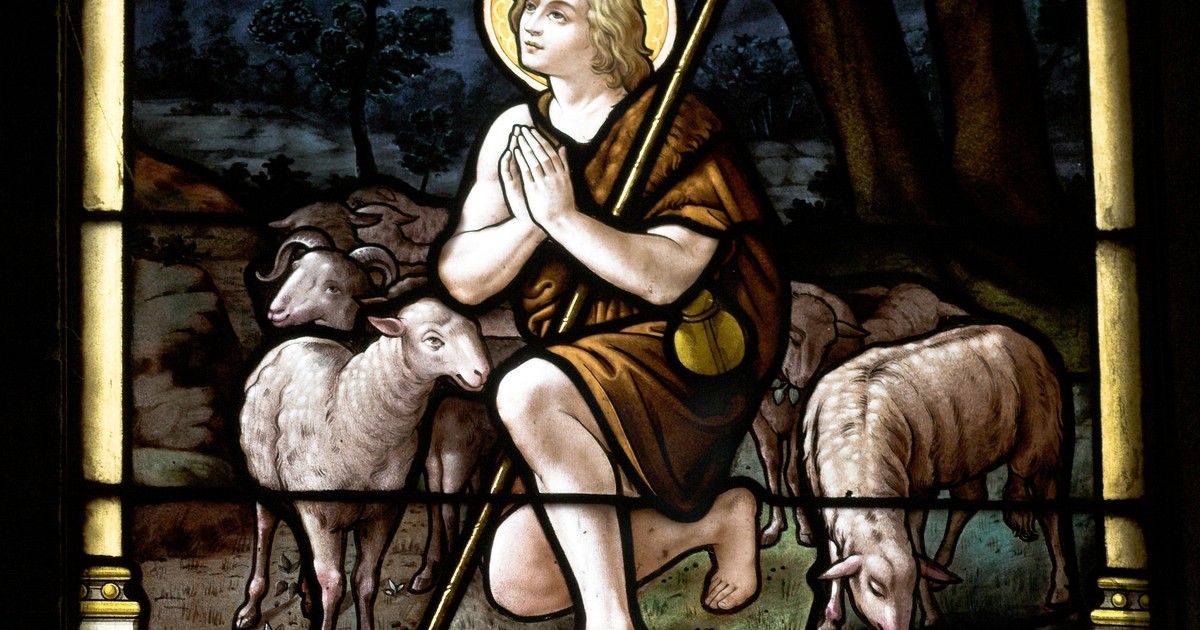Pastor-Elder-Bishop in Scripture
By T. R. Halvorson
Note: This post may be downloaded as a PDF file
One Office; Three Names
In Scripture, there is one pastoral office that the Apostles call by three names. The three names do not divide the office into three offices. Each name emphasizes an aspect of a single office. Together, they show the richness of the office.
The Three Names
The three names are:
- pastor (or shepherd)
- elder
- bishop (or overseer)
The word overseer refers to overseeing souls in a congregation, just as shepherds oversee sheep and elders oversee those of less age, experience, seniority, education, or training.
Basic Biblical Evidence
Paul teaches that Christ himself gave the office of pastor. He says, “He Himself gave some to be apostles, some prophets, some evangelists, and some pastors and teachers.” (Ephesians 4:11) Consequently, Paul and Barnabas “appointed elders in every church.” (Acts 14:23) Paul reminded Titus why he left him in Crete, saying, “For this reason I left you in Crete, that you should set in order the things that are lacking, and appoint elders in every city as I commanded you.” A church without a pastor is lacking something, but once Titus appointed elders in every city, they were not lacking, because elders are pastors and bishops.
In the first verse of Philippians, Paul greets his readers, “To all the saints in Christ Jesus who are in Philippi, with the bishops.” We have seen that Paul, Barnabas, and Titus appointed elders in every church and in every city. Yet he does not address the Philippians using the term elder, but bishop. That is because the bishops were elders, and they were pastors. He is not omitting a greeting to the pastors or elders.
Traveling through the rest of Acts and the epistles, we keep seeing the same office sometimes called elder, sometimes called pastor or shepherd, and sometimes called bishop or overseer.
In one poignant passage, Acts 20:17-36, we see the extended and deeply emotional scene of Paul’s departure from the elders at Ephesus. He had ministered there for three years, the longest of any place in his career as an Apostle. He knew these people well and loved them as himself. At the end, “they all wept freely, and fell on Paul’s neck and kissed him, sorrowing most of all for the words which he spoke, that they would see his face no more. And they accompanied him to the ship.” Paul, together with these elders, had built up the church of Ephesus to sound and healthy condition. Yet nowhere is there any reference to pastors or bishops in this scene. We see reference only to the elders. Paul was not leaving them without pastors or bishops. The elders were the pastors and bishops.
Two Brilliant Biblical Evidences
Two passages shine especially brilliant light on this truth. The first uses two of the three titles while obviously referring to the single office, and the second uses all three of the titles while obviously referring to the single office.
In Titus 1:5-9, quoted below, we see Paul talking about elders in verse 5, but then in verse 7 he uses the title bishop. He does this although it is obvious that he has not changed subject to a second office in the church. He still is talking about only one office, but he calls it by two names in the same passage. In fact, the word “for” at the beginning of verse 7 shows that what he is about to say explains or gives the reasons for what he already said in verses 5 and 6. That makes explicit that only one office is being discussed.
5) For this reason I left you in Crete, that you should set in order the things that are lacking, and appoint elders in every city as I commanded you–
6) if a man is blameless, the husband of one wife, having faithful children not accused of dissipation or insubordination.
7) For a bishop must be blameless, as a steward of God, not self-willed, not quick-tempered, not given to wine, not violent, not greedy for money,
8) but hospitable, a lover of what is good, sober-minded, just, holy, self-controlled,
9) holding fast the faithful word as he has been taught, that he may be able, by sound doctrine, both to exhort and convict those who contradict.
In 1 Peter 5:1-3, quoted below, we see Peter talking about elders in verse 1, but then shepherds (pastors) in verse 2, and then before he can finish the sentence in the same verse, overseers (bishops). He does this even though it is obvious that he has not changed subjects to a second and then again to a third office in the church.
1) The elders who are among you I exhort, I who am a fellow elder and a witness of the sufferings of Christ, and also a partaker of the glory that will be revealed:
2) Shepherd the flock of God which is among you, serving as overseers, not by compulsion but willingly, not for dishonest gain but eagerly;
3) nor as being lords over those entrusted to you, but being examples to the flock.
Both of these Apostles, Paul to the Gentiles and Peter to the Jews, use the three terms in the same way to refer to the single gift of Christ to the Church, pastors.



